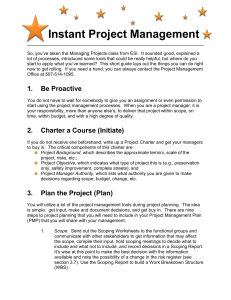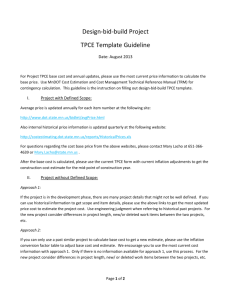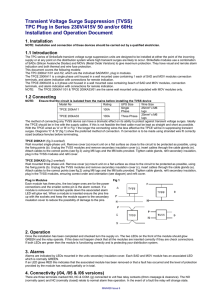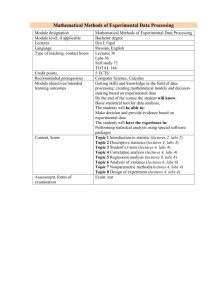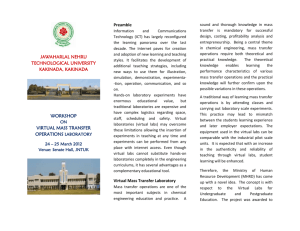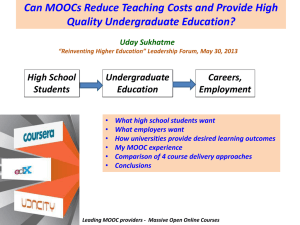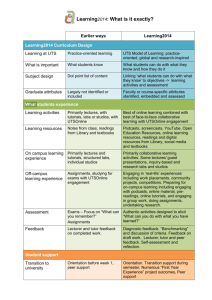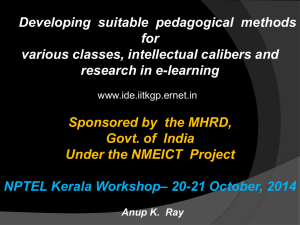IIT-Chennai-MHRD QEEE Programme!
advertisement
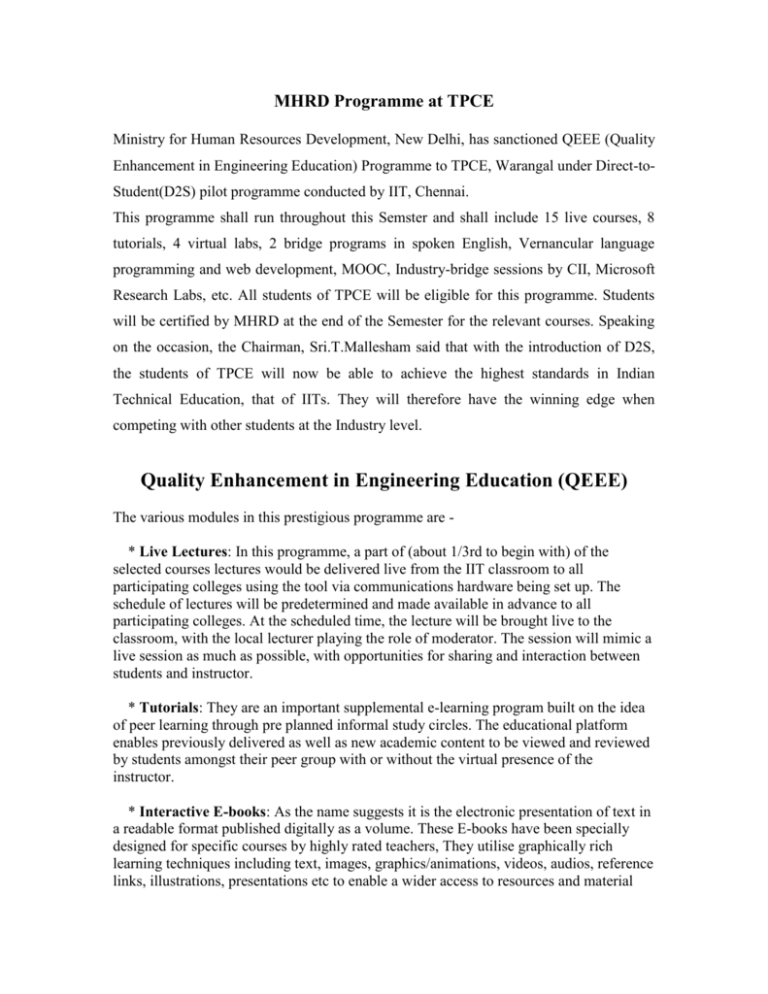
MHRD Programme at TPCE Ministry for Human Resources Development, New Delhi, has sanctioned QEEE (Quality Enhancement in Engineering Education) Programme to TPCE, Warangal under Direct-toStudent(D2S) pilot programme conducted by IIT, Chennai. This programme shall run throughout this Semster and shall include 15 live courses, 8 tutorials, 4 virtual labs, 2 bridge programs in spoken English, Vernancular language programming and web development, MOOC, Industry-bridge sessions by CII, Microsoft Research Labs, etc. All students of TPCE will be eligible for this programme. Students will be certified by MHRD at the end of the Semester for the relevant courses. Speaking on the occasion, the Chairman, Sri.T.Mallesham said that with the introduction of D2S, the students of TPCE will now be able to achieve the highest standards in Indian Technical Education, that of IITs. They will therefore have the winning edge when competing with other students at the Industry level. Quality Enhancement in Engineering Education (QEEE) The various modules in this prestigious programme are * Live Lectures: In this programme, a part of (about 1/3rd to begin with) of the selected courses lectures would be delivered live from the IIT classroom to all participating colleges using the tool via communications hardware being set up. The schedule of lectures will be predetermined and made available in advance to all participating colleges. At the scheduled time, the lecture will be brought live to the classroom, with the local lecturer playing the role of moderator. The session will mimic a live session as much as possible, with opportunities for sharing and interaction between students and instructor. * Tutorials: They are an important supplemental e-learning program built on the idea of peer learning through pre planned informal study circles. The educational platform enables previously delivered as well as new academic content to be viewed and reviewed by students amongst their peer group with or without the virtual presence of the instructor. * Interactive E-books: As the name suggests it is the electronic presentation of text in a readable format published digitally as a volume. These E-books have been specially designed for specific courses by highly rated teachers, They utilise graphically rich learning techniques including text, images, graphics/animations, videos, audios, reference links, illustrations, presentations etc to enable a wider access to resources and material previously limited to only a few institutes. This module will also have features that allow users to request for translations / provide translations into Indian languages * Virtual Labs: This module looks to provide virtual hands-on experience to students on experiments undertaken remotely. It creates an opportunity to work on a real lab experiment tailored to suit their syllabus and curriculum. It provides students and teachers alike, a chance to access quality resources and materials. * MOOC (Open Courseware): Open course ware essentially constitutes a licensed mechanism of delivering courses online directly to the student and not necessarily through the institutional set-up. It enables customized anytime anywhere learning through the internet.
